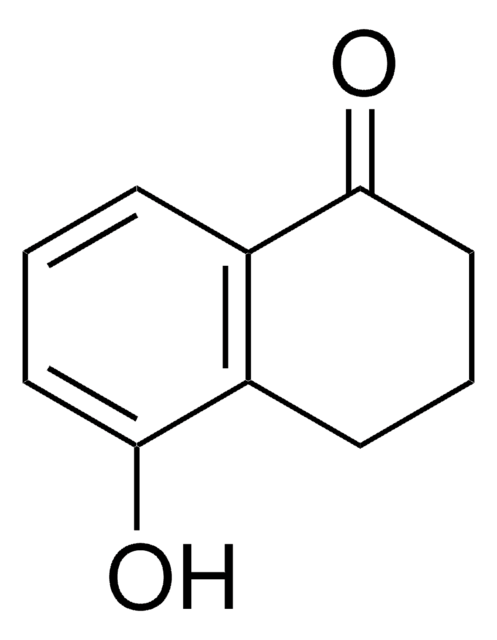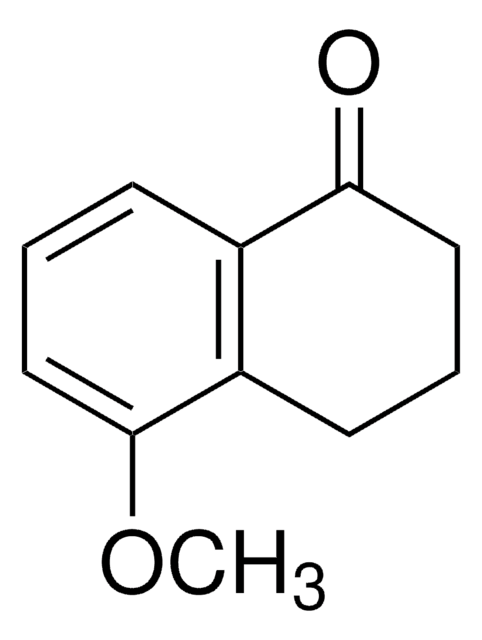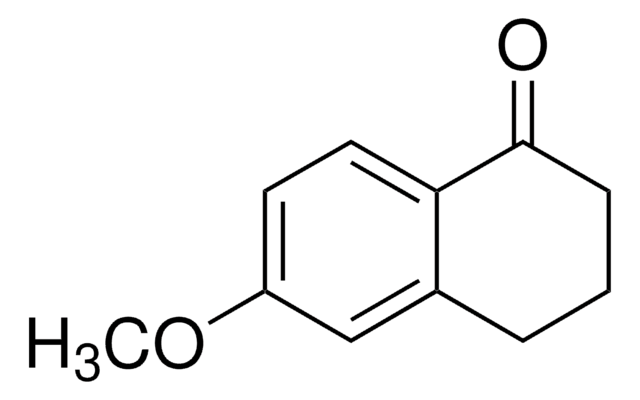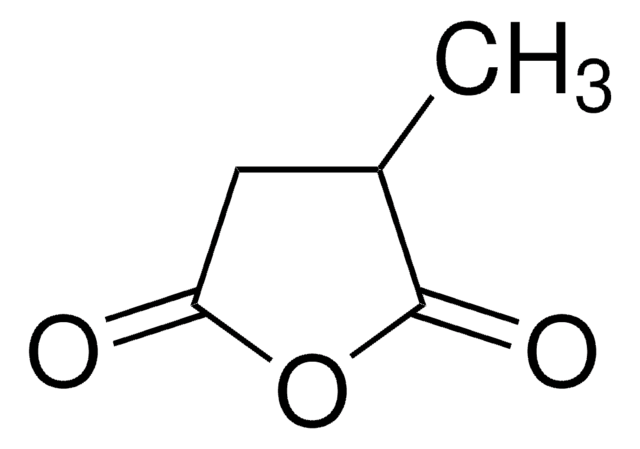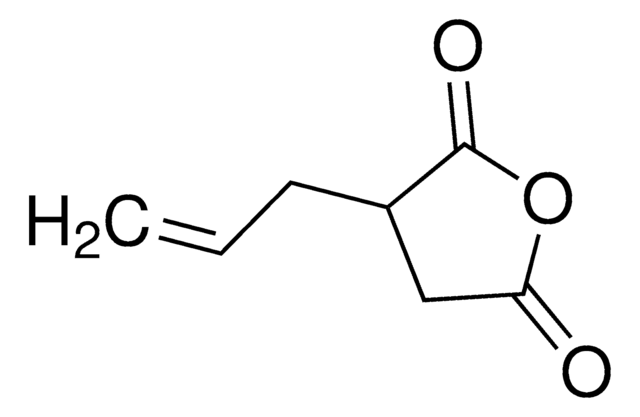239690
Succinic anhydride
≥99% (GC)
Synonym(s):
Dihydro-2,5-furandione
About This Item
Recommended Products
vapor density
3.5 (vs air)
Quality Level
vapor pressure
1 mmHg ( 92 °C)
Assay
≥99% (GC)
form
solid
bp
261 °C (lit.)
mp
118-120 °C (lit.)
SMILES string
O=C1CCC(=O)O1
InChI
1S/C4H4O3/c5-3-1-2-4(6)7-3/h1-2H2
InChI key
RINCXYDBBGOEEQ-UHFFFAOYSA-N
Looking for similar products? Visit Product Comparison Guide
Related Categories
General description
Application
- In the preparation of covalently cross-linked oxidized-alginate/N-succinyl-chitosan hydrogels, as injectable systems towards tissue engineering.
- In preparing functionalized oxide surfaces on a chip.
- As a starting material to synthesize polyesters in presence of a metal triflate as a catalyst.
- As a cross-linking agent to enhance the mechanicalproperties and antimicrobial activities of zein films.
Signal Word
Danger
Hazard Statements
Precautionary Statements
Hazard Classifications
Acute Tox. 4 Oral - Eye Dam. 1 - Resp. Sens. 1 - Skin Corr. 1B - Skin Sens. 1
Storage Class Code
8A - Combustible corrosive hazardous materials
WGK
WGK 1
Flash Point(F)
314.6 °F
Flash Point(C)
157 °C
Personal Protective Equipment
Choose from one of the most recent versions:
Certificates of Analysis (COA)
Don't see the Right Version?
If you require a particular version, you can look up a specific certificate by the Lot or Batch number.
Already Own This Product?
Find documentation for the products that you have recently purchased in the Document Library.
Customers Also Viewed
Our team of scientists has experience in all areas of research including Life Science, Material Science, Chemical Synthesis, Chromatography, Analytical and many others.
Contact Technical Service